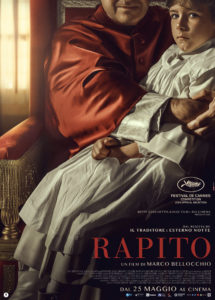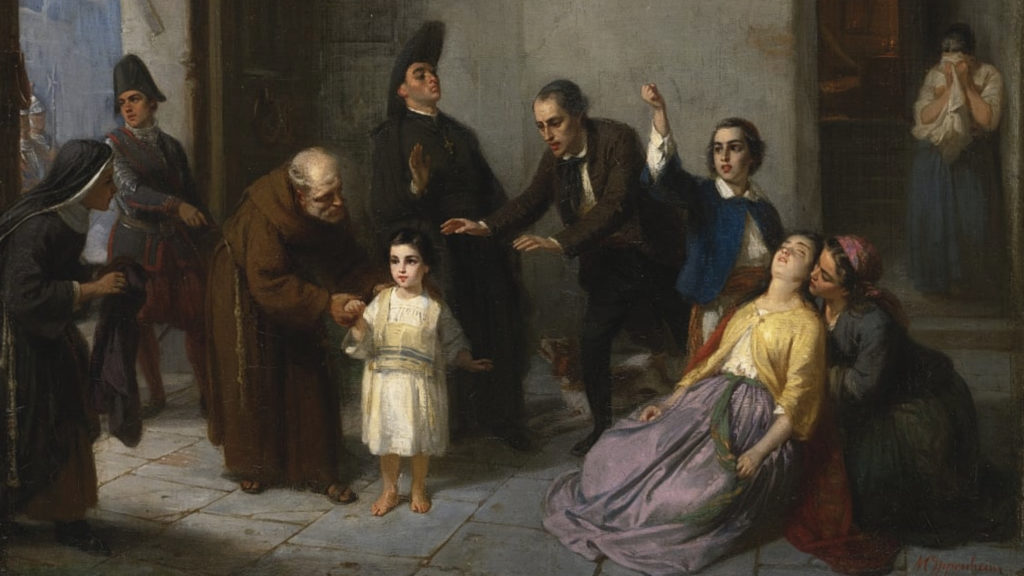ROME — For almost 40 years, the 1983 disappearance of 15-year-old Emanuela Orlandi, the daughter of a minor employee of the Papal Household whose family lived in a Vatican apartment, festered into Italy’s version of the Kennedy assassination without the Vatican ever feeling the need to launch its own investigation.
Yet in the wake of a successful Netflix series called “Vatican Girl,” the pope’s Promoter of Justice promptly announced that he was opening an inquest, vowing that no stone would be left unturned to establish what the Vatican knew and when it knew it.
Though it could just be coincidence, many observers can’t help thinking public pressure created by the highly rated four-part Netflix program was part of what broke the logjam.
At the moment, advocates of another Vatican gesture they regard as long overdue are hoping that a new movie currently playing in Italian and French theaters will have the same effect, creating momentum to amend the Church’s Code of Canon Law with a peculiar objective: the removal of a provision allowing for the baptism of a child even against the will of the parents if the infant is in danger of death.
That proposal was first floated almost a quarter-century ago, in conjunction with the 2000 beatification of Pope Pius IX, but went nowhere at the time.
It arises in connection with the infamous case of Edgardo Mortara, which is also the subject of the new movie, “Rapito” (“Kidnapped”) by famed Italian director Marco Bellocchio. It’s the story of a young Jewish boy who was secretly baptized in 1851 by his family’s Catholic maid in Bologna, while the city was still part of the Papal States. The maid had feared that young Mortara might die from an infection.
In late 1857, the local commander of the papal police learned of the baptism and, acting on the law of the Papal States which forbade a Catholic child from being raised in a non-Catholic home, forcibly removed Mortara from his Jewish family in 1858 and sent him to a residence in Rome for children in such circumstances.
This was the 19th century, not the Middle Ages, and a newly independent secular European press turned the case into a “cause célèbre.” Despite the backlash, Pope Pius IX dug in his heels and refused to return the child, instead raising him in the Vatican as a sort of surrogate son. Mortara went on to become a Catholic priest and died in Belgium in 1940.
One of Mortara’s descendants, Elèna Mortara Di Veroli, today is a professor of Anglo-American literature at Rome’s Tor Vergata University. Along with the Chief Rabbi of Rome, Riccardo Di Segni, she recently took part in the presentation of a new novel also loosely based on her ancestor’s story, and used the occasion to revive a request for a reform she first floated in 2000.
In essence, she wants a portion of canon 868 of the Code of Canon Law to be abrogated, which sets out the requirements for a baptism of an infant to be licit. (Any properly performed baptism is “valid,” meaning sacramentally effective, but not all such baptisms are necessarily “licit,” meaning performed with ecclesiastical permission.)
The second clause of canon 868, in English translation, states: “An infant of Catholic parents or even of non-Catholic parents is baptized licitly in danger of death even against the will of the parents.”

Elèna Mortara, saying she’s speaking in the name of all the relatives of Edgardo Mortara, has asked Pope Francis to eliminate that provision, which she regards as an ongoing justification for what happened to her family 165 years ago.
She rejected the argument that Edgardo’s embrace of the Catholic faith justifies his initial removal.
“They kept him segregated in a totally Catholic environment because they knew his education would determine what he became,” she said. “To justify even today their conduct on the basis that he became what they programmed him to be is just incredible.”
To date, there’s been no response from the Vatican to the request. Should Pope Francis consider the idea, it would pose a serious doctrinal dilemma.
On the one hand, paragraph 1257 of the Catechism of the Catholic Church states, “The Lord himself affirms that baptism is necessary for salvation.” Any step by the pontiff that appeared to undercut that teaching would, almost inevitably, stir fresh irritation among traditionalists and doctrinal purists.
Yet on the other side of the ledger, the Catholic Church clearly endorses religious freedom, and also emphasizes the rights of parents to be the primary educators of their children. (Among other things, bishops in the United States and other countries have cited that teaching often in defense of public support for Catholic schools.)
How to thread the needle with those differing considerations would represent a tough call, and the complexity may help explain why the Vatican has left the proposal alone for so long.
Still, Pope Francis has shown himself willing to wade into troubled waters. Recently, for instance, he acted on another long-standing demand, in this case from indigenous communities, to distance the Church from the so-called “Doctrine of Discovery” lending religious justification to the colonization of the New World.
Whether he’ll do something similar on the baptism question remains to be seen.
If he does, when might it happen? Well, keep an eye out for when “Rapito” starts streaming on Netflix … if experience is any guide, that might just do the trick.

